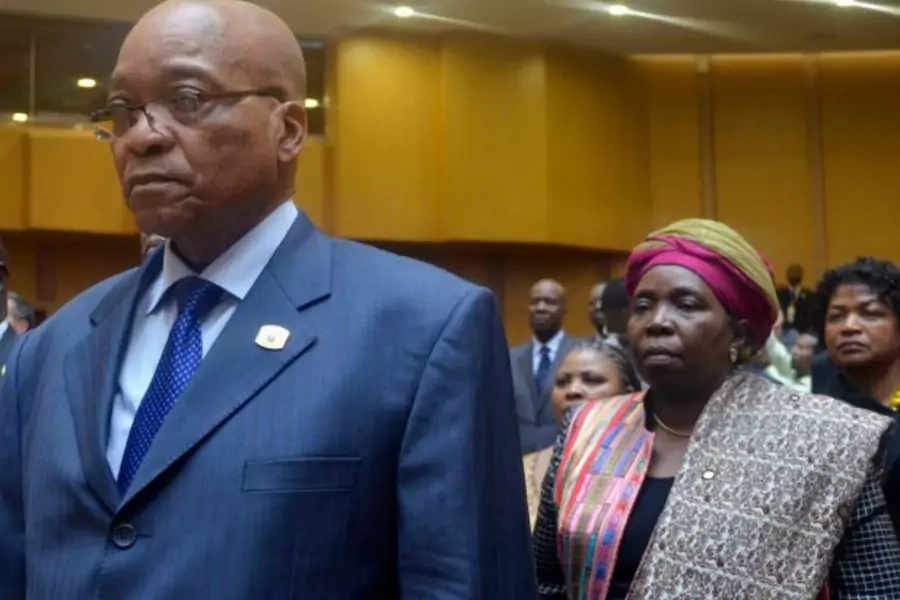More on:
Jacob Zuma’s term as president of South Africa’s governing African National Congress (ANC) ends in 2017; his term as South Africa’s president ends in 2019. Zuma’s successor as ANC president will almost certainly be South Africa’s next president, unless there is an electoral upset of an enormous magnitude.
Among foreign observers, the leading candidate for succession within the ANC has been Cyril Ramaphosa, an architect of the 1994 transition from apartheid to “non-racial democracy.” Ramaphosa was close to Nelson Mandela and has subsequently become a highly successful and internationally respected businessman. At present he is the deputy of both the ANC and the national government. But, there has long been speculation that Ramaphosa is falling out of favor with Zuma.
The view is widespread that Zuma’s primary succession concern is to protect himself against prosecution for alleged corruption and to protect the wealth he has accumulated for the benefit of his children. According to Africa Confidential (August 28, 2015, vol. 56, no. 17), Zuma has concluded that Ramaphosa cannot or will not do this. Accordingly, Zuma is behind the recent ANC Women’s League declaration that the next president of South Africa should be a woman.
Two women often seen as potential future presidents of South Africa are Baleka Mbete, the speaker in the National Assembly and current chairperson of the ANC, and Nkosazana Dlamini-Zuma, the chairwoman of the African Union Commission. Mbete briefly served as deputy president of South Africa under former President Kgalema Motlanthe. Dlamini-Zuma is the former minister of health in the Mandela government (she is a medical doctor.) She was also foreign minister in the Mbeki government. She is Jacob Zuma’s former wife and remains close to him politically. The Zuma government mounted a serious campaign to secure her election as chairwoman of the African Union Commission. As president of the party and the nation, presumably she would look out for the interests of the by-then former president and their children.
Mbete and Dlamini-Zuma are both plausible candidates if the party leadership is to go to a female. Of the two, Dlamini-Zuma would appear the stronger candidate because of her ministerial and African Union background. Baleka Mbete has never held a ministerial position. However, neither would appear to be as strong as Ramaphosa. Dlamini-Zuma was minister of health during the early days of the HIV/AIDS epidemic and her chairmanship of the AU Commission thus far has not been particularly noteworthy. Mbete in her position as speaker has appeared weak in the face of the parliamentary antics of the opposition Economic Freedom Fighters.
Dlamini-Zuma is a Zulu, the largest ethnic group in South Africa, and campaigned extensively for the ANC and Jacob Zuma in KwaZulu Natal during the 2014 election campaign, even though she was chairman of the African Union Commission at the time, and Jacob Zuma faced little opposition among his fellow Zulus. Her campaigning may have been an early effort to strengthen her credentials as the future president of the ANC and of South Africa.
More on:
 Online Store
Online Store
